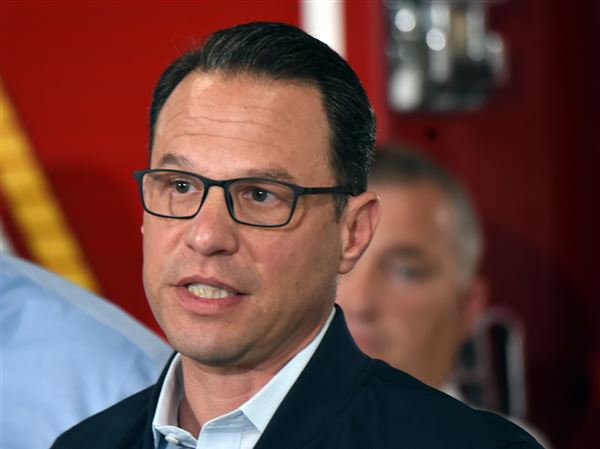A consultant Monday described the Pittsburgh Water and Sewer Authority as being “on its last leg.” There was no need to tell that to the thousands of North Side, Millvale and Reserve customers placed under a boil water advisory after bird and animal droppings were feared to have penetrated torn reservoir covers and contaminated the water.
It might be difficult to believe that no one in this high-tech hotbed of a city thought to replace the polyethylene covers of the Lanpher reservoir at some point in the past 20 years, except that Pittsburghers are so conditioned to PWSA’s litany of management failures — tens of millions of dollars of debt, lead-contaminated infrastructure, billing and service problems, a huge leak in a pipe, also on the North Side — that nearly anything seems possible at this point.
It just so happened that the boil water advisory was issued on the same day that the Washington, D.C., consultant, Infrastructure Management Group, outlined a menu of changes the city might embrace to put the agency back on course. These range from outsourcing services to “aggressive internal improvement” to a new ownership or management structure. What’s clear is that as the city weighs its options, consumers increasingly are at risk. When and where will the next shoe drop?
Mayor Bill Peduto acknowledged such worries Monday when he said, “There is no backup system. There are numerous issues, and if one thing goes down within this authority, the potential of not having water in this city is very real.”
Nothing would arrest the city’s economic progress and newly hip image faster than the inability to provide fundamental water and sewer services. It has taken the city decades to shed its Rust Belt reputation, but even a short-lived water crisis would be sufficient to revive old stereotypes. Pittsburgh easily could become the next Flint, Mich., a national symbol of neglect and failure. Residents would flee. Capital would, too. It’s often said that a strong city anchors the region, so all of southwestern Pennsylvania would suffer from Pittsburgh’s backsliding.
The fate of PWSA is nothing less than the No. 1 issue in this city, and the matter that should occupy much of Mr. Peduto’s attention each day. “There are no easy choices,” he said Monday, adding that “there will be costs and the costs will go through ratepayers. There are no federal or state programs to bail us out.”
It’s time for Mr. Peduto to put a plan before the city, give consumers an opportunity to weigh in and move forward. Business people who have invested in the city’s new economy should press for decisive action; their investments are on the line. Meanwhile, PWSA should test its system for weaknesses — are any other reservoir covers in need of replacement? — to head off additional problems.
As it restructures PWSA, city officials should accept help from any credible partner. In June, the state House passed a bill that would give the Public Utility Commission oversight of PWSA. The Senate has not yet acted on the bill. It should pass it quickly. The more eyes on PWSA, the better.
It’s bad enough for a city to lose its water in a natural disaster. It would be unconscionable for Pittsburgh to lose its supply because of a disaster that was man-made.
First Published: August 30, 2017, 4:00 a.m.

















